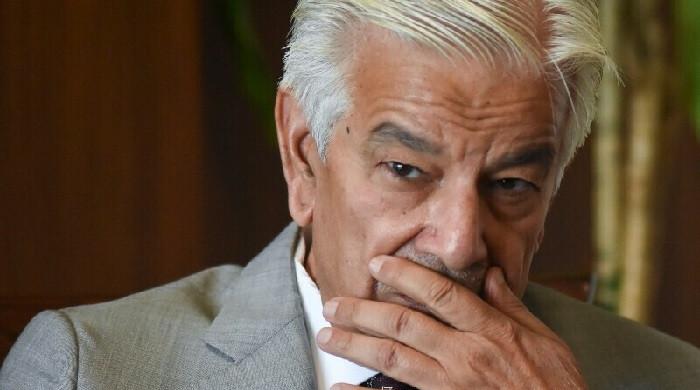- It accuses the Government of Modi of Heating promoted by the elections.
- He warns India of “devastating consequences” in any misfortune.
- He says that Pakistan’s response will be fast, decisive and unforgettable.
Defense Minister Khawaja Asif, on Sunday on Sunday, replied sharply to what he called provocative statements of the main security establishment of New Delhi, saying that India would be “buried under the remains of his combat planes, Inshallah.”
In an X publication, Asif described the recent comments of the military and political leaders of India as a failed attempt to restore their lost credibility. He said his statements showed pressure at the top.
“After such a decisive defeat with a 6-0 score, if you try again, the score will be even worse,” the minister wrote. He added that public opinion in India had become strongly against the ruling party after that defeat, and that was reflected in the words of the leaders.
The Minister of Defense also said: “Pakistan is a state built on behalf of Allah, our defenders are soldiers of Allah. This time, India, Inshallah, will be buried under the remains of its planes. Allahu Akbar.”
Previously, the army spokesman had also reacted to the same comments from Indian security circles.
In response to the War rhetoric of India, the country’s armed forces warned that “provocative and jingoistic comments” of senior Indian security officials run the risk of manufacturing pretexts for aggression and could lead to “cataclysmic devastation.”
Public relations between services (ISPR) said such comments suggested a renewed attempt to manufacture arbitrary pretexts for aggression that would have “serious consequences for peace and stability in southern Asia.”
A day before, the head of the Air Force of India, Amar Preet Singh, said that India demolished five Pakistani combat aircraft of class F-16 and JF-17 during the intense fight between neighbors with nuclear weapons in May.
“With regard to the part of the air defense, we have evidence of a long-range strike … along with those five combatants, high-tech combatants between class F-16 and JF-17, our system tells us,” Singh told journalists at the annual press conference of the Indian Air Force.
However, he did not provide any evidence to support his claim.
Pakistan’s army criticized India for a long time portraying as a victim while “fueled violence and terrorism in southern Asia and beyond”, saying that this narration has been discredited.
The ISPR added that the international community now recognizes India as “the true face of cross -border terrorism and the epicenter of regional instability.”
Referring to the incidents earlier this year, the ISPR said that the Indian aggression had brought “two nuclear powers to the edge of an important war”, and criticized the Indian leadership for apparently ignoring the “remains of its combat planes and the anger of Pakistan’s long -range vectors.”
In the recent comments of the Minister of Defense and the Heads of Service of India, the military warned that a new round of hostilities “could lead to a cataclysmic devastation.”
He also warned that Pakistan “will not stop” and “will respond resolutely, without repairs or restrictions” if hostilities are activated.
The statement added that those who seek to establish a “new normality” must be aware that Pakistan has established a new normality of response, which will be rapid, decisive and destructive.
In the rhetoric about erasing Pakistan from the map, the ISPR said that India “should know that if the situation comes, the erase will be mutual.”
Separately, security sources described the threats of India as an empty bravery. They said the armed forces were completely prepared to defend the country.
The Mayo struggle, the worst among the old enemies in decades, was caused by a terrorist attack against tourists in the Indian area of Jammu and Kashmir (Iiojk) Pahalgam, which New Delhi said he was backed by Pakistan.
Islamabad denied participation in the Kashmir’s attack, which killed 26 men and was the worst assault on civilians in India from Mumbai attacks in 2008.
After the incident, India killed several innocent civilians in attacks not caused against Pakistan for three days before Pakistan’s armed forces take reprisals in defense with the successful Bunyan-Um-Marsus operation.
Pakistan knocked down six IAF combat planes, including three rafale, and dozens of drones. After at least 87 hours, the war between the two nations with nuclear weapons ended on May 10 with a high -fire agreement negotiated by the United States.




